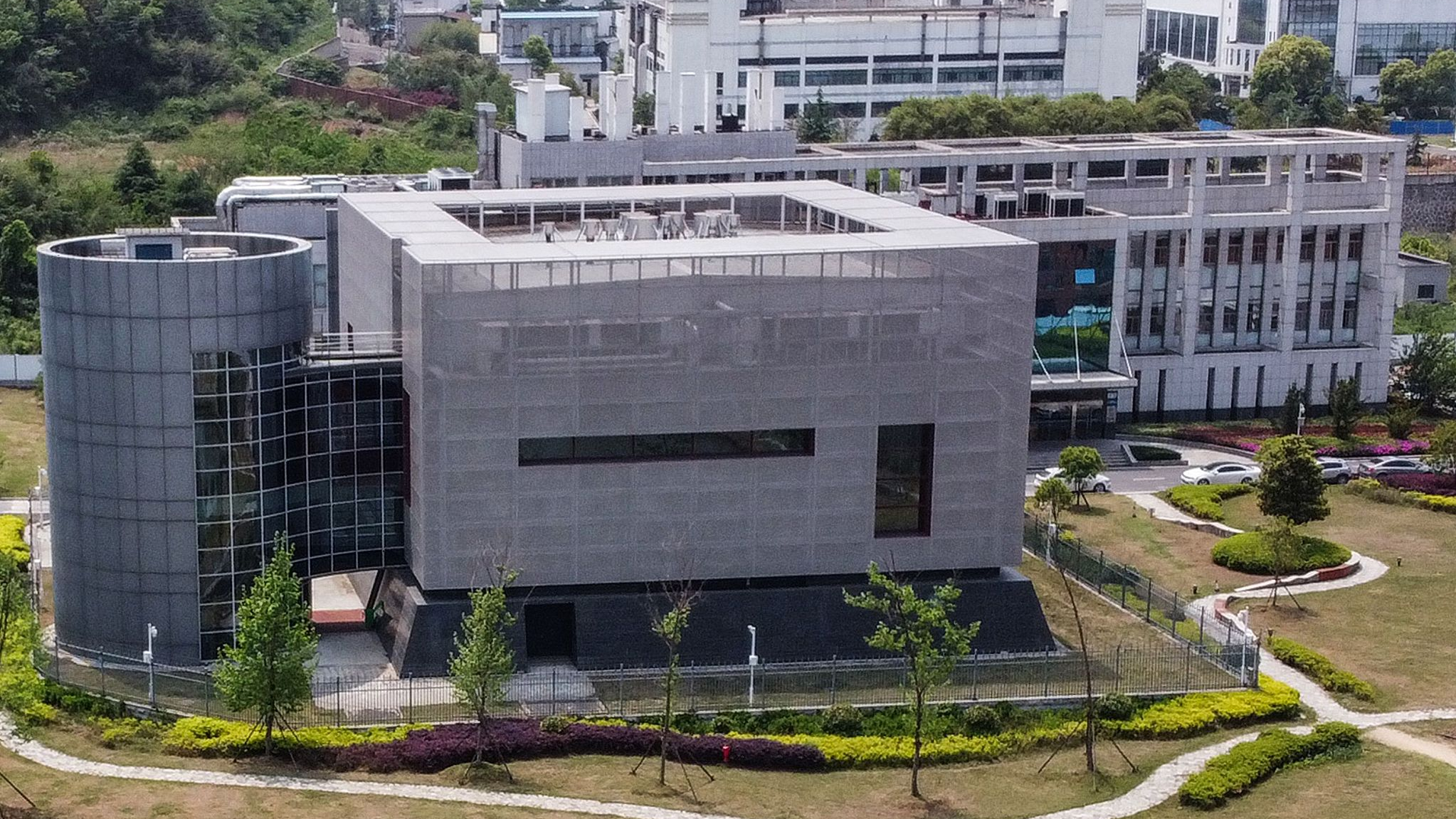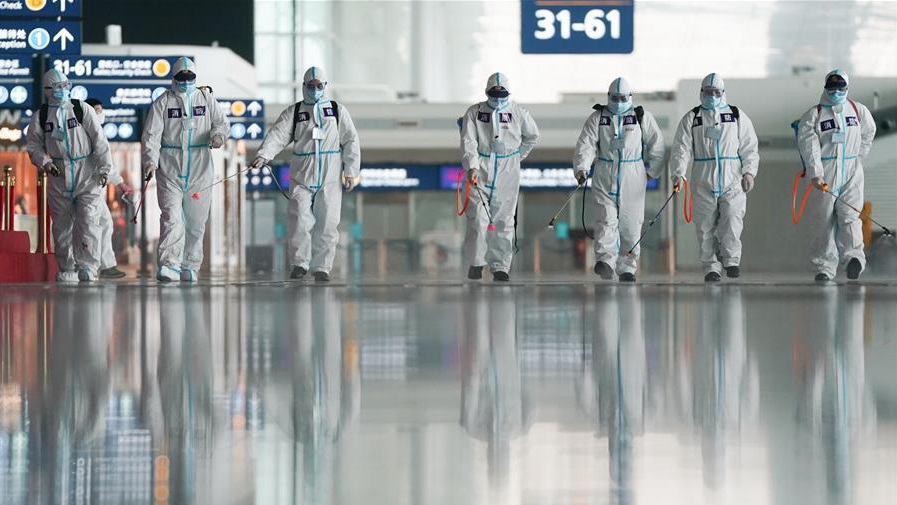
Wuhan Institute of Virology. /VCG
Wuhan Institute of Virology. /VCG
Editor's note: Anthony Moretti is an associate professor in the Department of Communication and Organizational Leadership of Robert Morris University in Pittsburgh, Pennsylvania. The article reflects the author's views and not necessarily those of CGTN.
One of the most important lessons I learned as a student journalist was to "follow the money" whenever controversial stories, especially relating to accusations of corruption, were happening. While the money could not speak for itself, it most definitely could tell everyone to whom it was given, and how much that person received. Now as an educator, I share that same lesson with my students.
A variation on that phrase is essential as the world continues to seek definitive answers as to the cause of the coronavirus. "Follow the science" must be the mantra you and I – no matter how versed we might be in the sciences and no matter what our personal feelings are – preach.
"Follow the science" means being patient. It means being open-minded. It definitely means not allowing our biases and prejudices to get in the way of the facts. Scientists need time to investigate what caused the spread of coronavirus, and why. And most importantly, the knowledge gained from those studies will reduce the likelihood of another pandemic gripping the world in the future.
Sadly, following the science is something far too many people do not want to do. Whether they feel empowered by looking for conspiracies that do not exist, enjoy advancing discredited ideas or simply wish to score political points at home and abroad, these people are unable to accept the strongest conclusion to date: There was no "lab leak" from the Wuhan Institute of Virology. Rather, it seems almost certain that a rabid bat is responsible.
Social media remains a great ally to this "no, I will not 'follow the science'" crowd. The cliche that a lie spreads halfway around the world before the truth has a chance to put on its shoes echoes loudly: Some people simply cannot resist the allure of liking, retweeting, sharing or otherwise supporting an explanation for coronavirus that lacks any evidence or is not grounded in common sense. And when that zeal to spread rumors (or outright lies) gets mashed together with the blatant anti-China/anti-Asian hysteria that exists in the United States, the recipe for irrational ideas is complete.

Firefighters conduct disinfection at Terminal 3 of Wuhan Tianhe International Airport in Wuhan, central China's Hubei Province, April 3, 2020. /Xinhua
Firefighters conduct disinfection at Terminal 3 of Wuhan Tianhe International Airport in Wuhan, central China's Hubei Province, April 3, 2020. /Xinhua
Remember the letter, dated May 14, and signed by 18 prominent scientists from multiple nations? In it, they reminded the global community of the findings from the detailed initial investigation into what caused coronavirus to spread first across China and then globally. This is the most important excerpt to their communication: "Although there were no findings in clear support of either a natural spillover or a lab accident, the team assessed a zoonotic spillover from an intermediate host as 'likely to very likely,' and a laboratory incident as 'extremely unlikely'."
How about we put that in a layperson's terms: An infected bat is "likely to very likely" responsible for the pandemic, and human error from inside the virology lab is "extremely unlikely" as the cause.
One of the scientists who participated in that study recently wrote in the Guardian that history adds credibility to the infected bat theory: "Based on nearly all emerging human viruses of the last 50 years (including Sars in 2003 and Mers in 2012), animals are the likely source."
Dominic Dwyer then went a step further: "Accidental human infections in research laboratories have happened previously, but fortunately rarely. For a leak to occur, the virus must be present in the laboratory already and there would have to be a breakdown of usual regulated laboratory procedures around sample collection and preparation."
There is no reason to believe the virus was inside the lab and that such a breakdown occurred in Wuhan. Those words are based on the available evidence, not on personal opinions. Such comments do not play well on social media because they lack controversy and they do not tolerate anti-China sentiment.
Another scientist, who works at Penn State University, also has tried to shoot down the "lab leak" theory. Maciej Boni told NBC News: "There has been no new evidence over the past 16 months that the virus had a lab origin.”
Follow the science.
Almost 20 years ago, two airplanes were flown into the two twin towers in New York City, while a third was flown into the Pentagon and a fourth crashed in Pennsylvania. The evidence that one evil madman convinced nearly 20 men to hijack those aircraft is irrefutable. Yet certain people continue to believe something else. Unfortunately, when it comes to identifying the cause of coronavirus, some people will refuse to accept whatever evidence is available now and in the future because they must believe something else.
They are not following the science.
When you do the opposite, you reach only one conclusion: The evidence to support the "lab leak" theory is not there.
(If you want to contribute and have specific expertise, please contact us at opinions@cgtn.com.)

